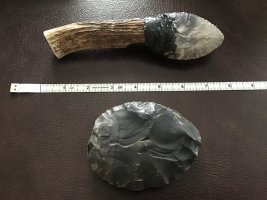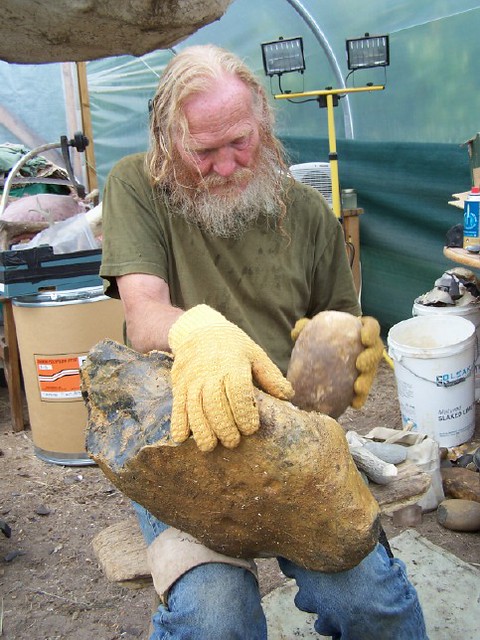Following on from Pops’ Otzi thread. I have always had a fascination for the tools our ancestors made whilst living in this beautiful island, and I have a few original pieces I’ve managed to collect over the last few years. Pops has just rekindled my interest in knapping and I dug a couple of items I made a few years back when I was really into it.
On top: Red deer antler handle secured and wrapped with nettle cordage and pine resin. Bottom: ovate hand axe

I have a ton of arrowheads in various shapes and sizes around here too somewhere (as long as they haven’t been nicked and used), and spears and scrapers etc.
So let’s see your work if you’ve done some.
On top: Red deer antler handle secured and wrapped with nettle cordage and pine resin. Bottom: ovate hand axe

I have a ton of arrowheads in various shapes and sizes around here too somewhere (as long as they haven’t been nicked and used), and spears and scrapers etc.
So let’s see your work if you’ve done some.
Last edited:


 Red & John Lord
Red & John Lord Red End
Red End JL large flint
JL large flint Mookaite flint knapped arrow head
Mookaite flint knapped arrow head